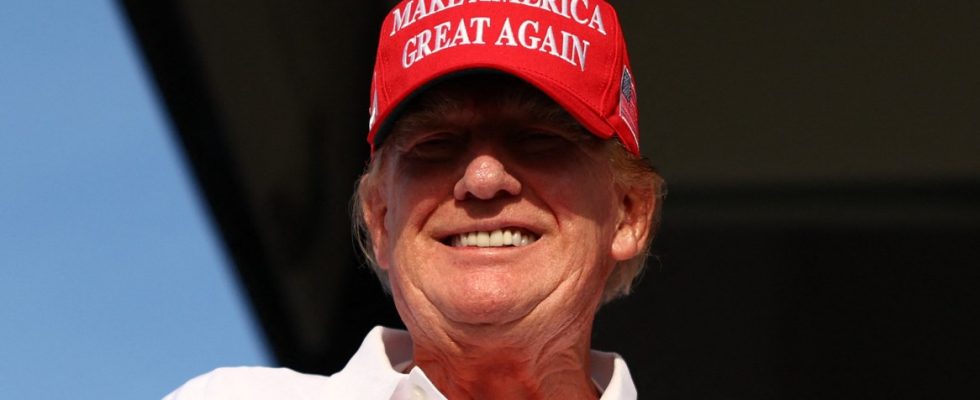Like a feudal ruler, Donald Trump resides in his beach club in Florida and welcomes supplicants and sycophants. Pilgrimages to Mar-a-Lago are considered common practice among Republicans. Now they suddenly become of utmost importance for the war in Ukraine, the support of the EU and therefore also for the German budget.
It’s about $60 billion, money from the US government that has been waiting for months to be released. A large part of it was intended to support Ukraine, which would use the money to buy urgently needed weapons – primarily from the USA. If the money doesn’t flow, Ukraine’s defense could collapse within weeks.
“If Congress doesn’t help Ukraine, Ukraine will lose the war.”
The Republican majority in the House of Representatives is still refusing to approve it out of fear of a few dissenters from the Trump right wing. Now the party is staring spellbound at Florida, where the prince will raise or lower his thumb. Trump rejects aid to Ukraine and links payments to the financing of border facilities in the south of the USA and a tough migration policy. At the same time, he is not at all interested in solving the migration problem during the election campaign because the influx of migrants helps him.
The round of petitioners was opened by British Foreign Minister David Cameron, who arrived in Florida on Monday for dinner regarding Ukraine. Apparently that was too small a fish for Trump. How successful Cameron’s influence was was not publicly apparent. Cameron remained silent after the encounter.
Dramatic appeals from Ukrainian President Volodymyr Zelenskiy (“if Congress doesn’t help Ukraine, Ukraine will lose the war”) or the US supreme commander in Europe, Christopher Cavoli, didn’t help either. The four-star general shared a simple truth with the Congressional Defense Committee midweek: “The side that can no longer fire back loses.” Translation: Ukraine is running out of ammunition while Russia is pushing its weapons production into new heights.
The EU is actually experienced in raising large amounts of money
Even if foreign policy actors in Germany or France doubt the usefulness of a supplicant tour to Florida and accuse Cameron of making a gesture of submission behind closed doors, Trump’s approval would still be in their interest. Otherwise you could end up with a bill. For weeks, simulation games have been being carried out in Berlin and other European capitals as to how Europeans would have to react to a failure in US payments.
Chancellor Olaf Scholz put the issue of aid to Ukraine at the center of the first three-way round with French President Emmanuel Macron and Polish Prime Minister Donald Tusk on March 18. As always, support flowed into the formula that they would do “everything and for as long as possible” to ensure that Russia did not win the war. But 60 billion?
The EU is experienced in raising large amounts of money, especially for Ukraine. The Commission’s proposal to seize interest profits from frozen Russian assets is on the table. However, this is only a few billion. The US Treasury Department has now mirrored an idea from Brussels that the money could also be used as collateral for bonds. However, there are still significant gaps: according to the usual EU key, with a financial requirement of 60 billion, Germany would have to cover around a quarter.
Princely authority
It is understandable that no one in Berlin or Brussels speaks publicly about their willingness to provide emergency aid. The ball is in Washington, more precisely in Mar-a-Lago with Donald Trump. The next guest is expected there this weekend: Mike Johnson, Republican Speaker of the House of Representatives, an advocate for more support in the war against Russia. But his razor-thin majority depends on the goodwill of the Trump radicals.
Their first representative, MP Marjorie Taylor Greene, had already made it clear in a letter on Tuesday that she would overthrow Johnson if he even managed to get the Ukraine money through with the help of the Democrats. So now it’s time for the finale on the beach in Florida. Johnson is hoping for a public show of love from Trump that will immunize him in the fight for survival against the radical right. Maybe he will then dare to introduce the funding bill in Congress next week.
The only thing that is certain is that the prince in Florida will decide whether the speaker can keep his job – and whether Ukraine receives its money.

